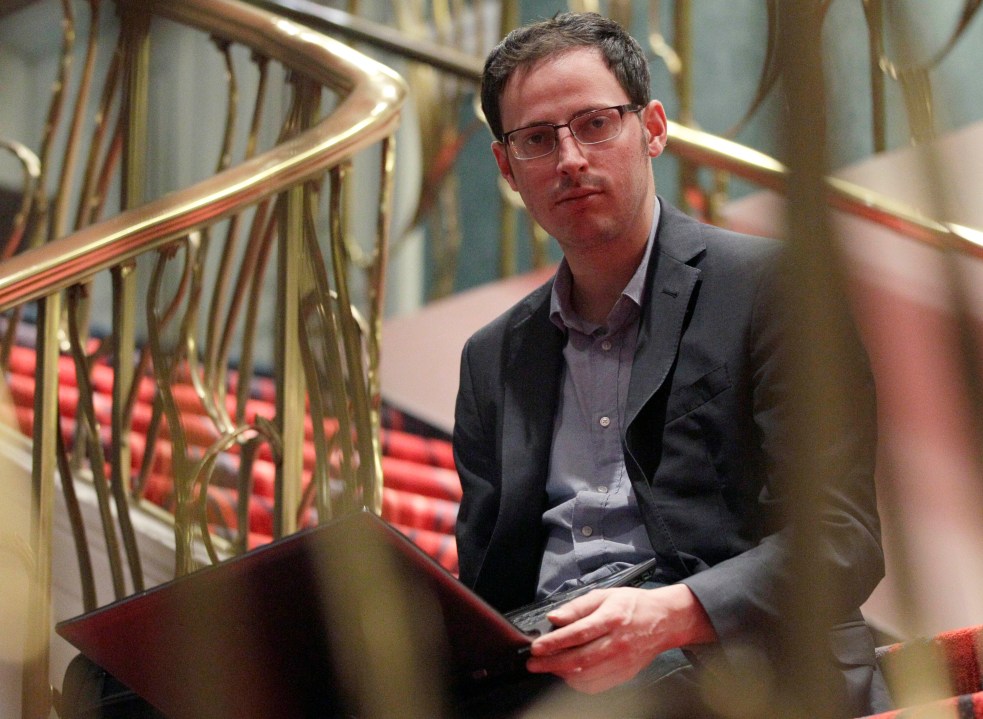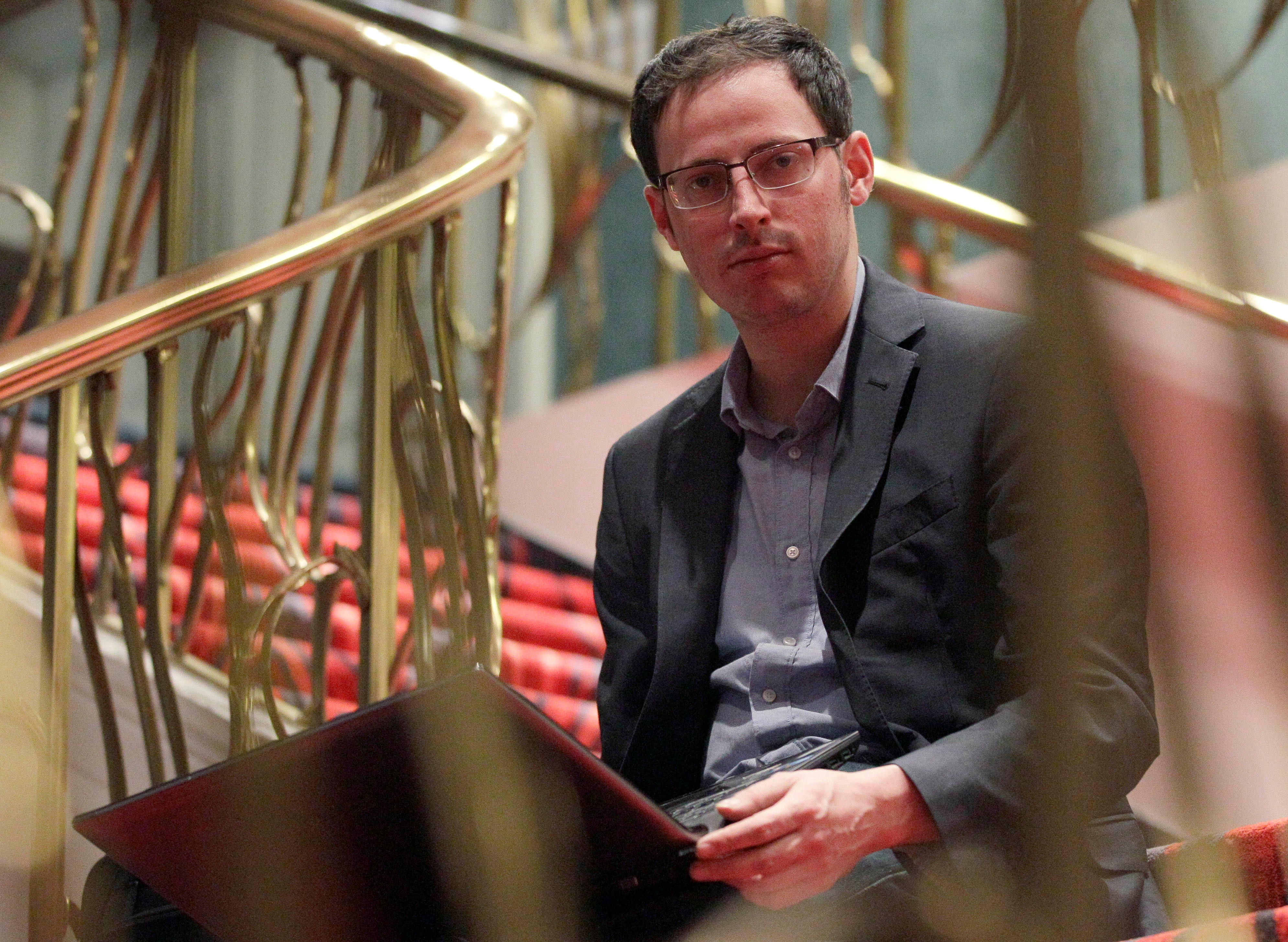Nate Silver doesn’t suffer fools gladly — especially fools who pass themselves off as experts. In the second chapter of his book, The Signal and the Noise: The Art and Science of Prediction, he describes just how bad most political pundits are. And in person, he goes even further.
‘I think some of them are very skilled at the art of bullshit; I think some of them are just deluded; some of them aren’t very smart; some of them are immoral; some of them are well-intentioned but wrong; some of them are behaving as party hacks. And there’s not a lot of incentive for them to change that.’ Most columnists are ‘a waste of space’, he says. ‘A lot of them are nice people, but they’re literally a waste of column inches. It’s like “We’ll put the stuff that has the ring of fact and truth in the news section” and so what does that imply about the stuff that’s not in the news section?’
His mission, when he set up his Fivethirtyeight blog to predict the 2008 US presidential election, was to take them on — and by any objective measure, he’s won. His poll-based model accurately predicted the winner in 49 of the 50 states, and he called every Senate race correctly too. In 2012 — now at the New York Times — he got all 50 states right, while some pundits were still claiming the race was ‘too close to call’, or even that Mitt Romney would win. In the process, he rose to international prominence and came under fire as a ‘joke’ and an ‘ideologue’ (from Joe Scarborough), ‘a wizard’ in ‘silly land’ (from David Brooks) and even ‘a thin and effeminate man’ who ‘might be of average intelligence but is surely not the genius he’s made out to be’ (from the creator of the mad ‘UnSkewed Polls’ website).
Despite his contempt for the opposition — or perhaps because of it — there’s a conspicuous lack of arrogance about his own contributions. ‘There have been a lot of sites that make forecasts based on polls, it’s not that complicated a task really compared to a lot of things people are facing.’ Essentially, the bar for political predictions was so low that clearing it wasn’t that miraculous. Even if he hadn’t set up Fivethirtyeight, he says, something similar would’ve happened anyway, if not now then in 2014 or 2016. ‘A lot of innovations are things that are kind of obvious, but some people are maybe a couple of years ahead or a couple of years behind.’
The conditions of the 2012 campaign certainly helped, though— especially as it was reasonably close but not too close. ‘People kind of get what 50-50 means and they get when something is extremely certain, but this campaign was somewhere in between. By election day we had Obama as a 90 per cent favourite, but over the course of the final couple of months he was a little bit north or south of 75 per cent, so right in between that zone of complete randomness and complete certainty. And I think people don’t deal well with that. When you say someone’s an 80-20 favourite, people mistake that for absolute certainty, whereas it still means there’s a one-in-five chance that the other person will win the election. If you woke up every day with a one-in-five chance of being stabbed to death, you wouldn’t want to take those odds for very long.’
‘But I don’t want to necessarily blame lay people here’, he says. Back to bashing the media, and its apparent preference for balance over truth. ‘A lot of it is the political media’s fault. They have trouble weighing evidence along that probabilistic scale, even though that’s where the vast majority of phenomena in the world occur. They feel as though if they present more polls that have Obama ahead than Romney ahead then they’re kind of taking sides. If you had Chelsea and Manchester United playing in a football match and Chelsea scored three goals and Man U scored one, they’d say “Well, Man U have scored some goals and Chelsea have scored some goals, so it’s too close to call”. No, you’re allowed to actually count things.’
The other thing that helped him breakthrough in 2012 was the Republican Party’s tenuous relationship with facts. ‘You’ve got Republicans in the United States moving away from empiricism of any kind and behaving as though they’re entitled to their own reality. So you take relatively simple facts like election polls and it’s now gotten bad enough where they can mangle those facts too. Not just the Iraq war or the climate or something, but relatively simple facts where you just have to count things and average things. Republicans are not very conservative in the United States, they have quite a radical French avant-garde view that you can construct your own reality. It’s the opposite of conservative, I think.’
And he certainly doesn’t think bad stats journalism is limited to the field of politics. ‘I’m actually reading some of Ben Goldacre’s books now and some of the stuff he describes is more problematic, where I think the way newspapers cover medicine can be fairly poor a lot of the time. They really hawk in miracle cures and outlier results that are too good to be true really.’ But is it worse than Politico and Dick Morris? ‘I met Ben briefly the other night and we were debating whether the coverage was worse in politics or medicine and we were both convinced that in our field it was worse. I’ve read his book now so I’m less convinced, but it has to be worse in politics! Politics, I think, is uniquely full of bullshit. Uniquely full of people who don’t really have any moral inclination towards the truth.’
Better-educating consumers is the only way things will get better, he says. ‘You’re not going to be able to count on the media accurately conveying statistical results. And you’re certainly not going to be able to count on marketers and advertisers even having the intent to convey those results accurately. So conveying those critical thinking skills is important.’ And that starts in maths lessons. ‘Math is taught in a way that is often very abstract; it’s not applied as much. In fact there’s not much probability and statistics anyway, really, whereas students will have to take a lot of matrix algebra and calculus, which have more specialised applications. It seems like there’s a lot of time where kids are being taught calculus when they could spend the time teaching probability, and that might be useful.’
So how did he overcome all those calculus lessons and end up thinking probabilistically, then? ‘I think it’s my weird background: being involved in sports and trying to beat my fantasy baseball league and trying to win my college basketball tournament pool and playing poker and having some experience in economic consulting. It’s all applied experience.’ So, if we want more Nate Silvers and fewer Dick Morrises — and surely we do — maybe we’d better turn maths lessons into texas hold ’em tournaments and put fantasy football on the curriculum.
The Signal and the Noise by Nate Silver is published by Penguin.







Comments